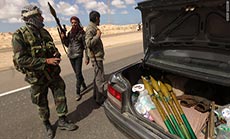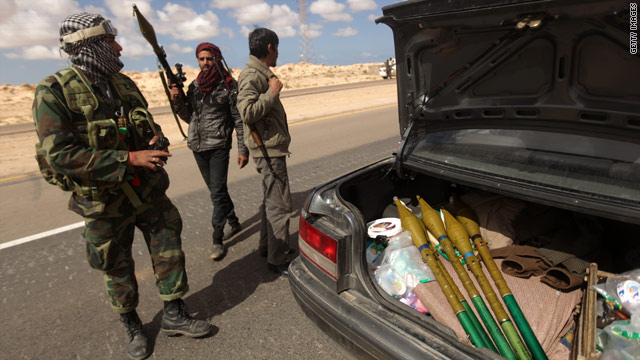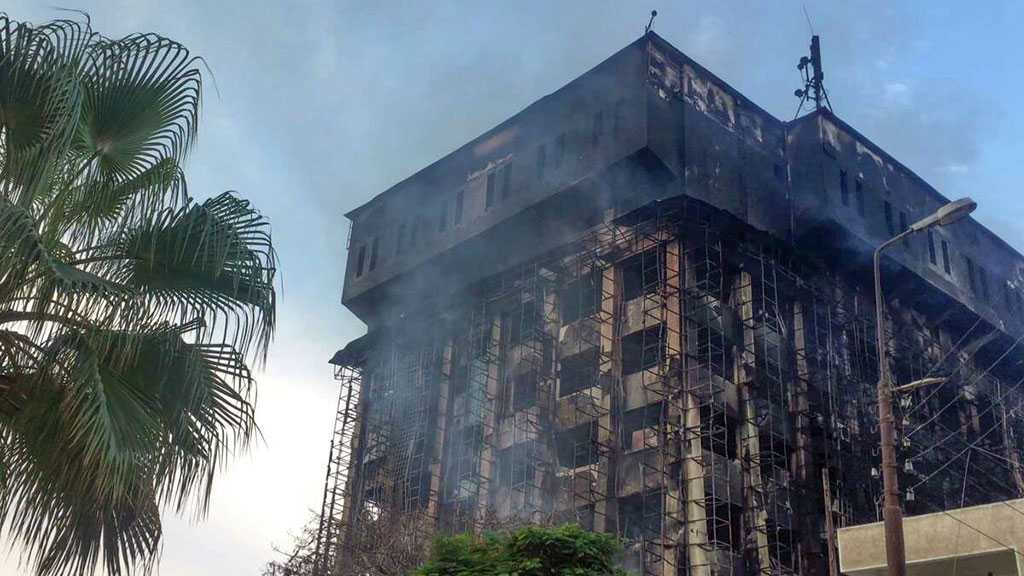
Libya Pushing Arms to Syria Rebels

Local Editor
High ranking Libyan officials are allowing mass shipments of weapons sent from their country to reach anti-government rebels in Syria, an investigative report published Tuesday said.
 Senior officials in Libya's army and government told Reuters they backed private arms dealers supplying weapons to the Syrian opposition.
Senior officials in Libya's army and government told Reuters they backed private arms dealers supplying weapons to the Syrian opposition.
The report stated that Abdul Basit Haroun, a former Libyan rebel commander in the uprising that overthrew Muammar Gaddafi in 2011, is behind some of the biggest shipments of weapons from Libya to Syria.
The arms are reportedly shipped on chartered flights to countries bordering Syria, and then smuggled over the border.
"After the end of the [2011 Libyan Civil War], Haroun became involved in supporting the Syrian rebels... sending aid and weapons to the Syrian people," said assembly member Tawfiq Al-Shehabi.
"He does a good job."
Another official, who declined to be identified, said he had allowed weapons to leave the port of Benghazi for Syria.
"We don't stop them because we know what the Syrian people are going through," he claimed, referring to weapons being smuggled out of the eastern port. He did not say who was behind the shipments he allowed.
The first consignment of weapons was smuggled into Syria aboard a Libyan ship delivering aid last year, Haroun told Reuters, but now containers of arms are flown "above board" into neighboring countries on chartered flights.
In the months since Haroun began his work, arming the rebels has moved up the international agenda, with Saudi Arabia equipping them with missiles, and Washington also planning to send weapons to the armed groups.
A Reuters reporter was taken to an undisclosed location in Benghazi to see a container of weapons being prepared for delivery to Syria. It was stacked with boxes of ammunition, rocket launchers and various types of light and medium weapons.
Haroun and an associate said it was being stored on the unnamed base to keep the arms safe.
"They are not partners with me in the transfer of weapons, but I store the weapons here because it is a safe place," said Haroun's associate, who asked not to be named because it could negatively impact his relief work.
Haroun said he can collect weapons from around the country and arrange for them to be delivered to the Syrian rebels because of his contacts in Libya and abroad.
"They know we are sending guns to Syria," Haroun said. "Everyone knows."
In Libya, he helps the government with state security, according to interior ministry spokesman Majdi al-Ourfi.
His weapon dealing activities appear to be well known, at least in Libya's east.
A Libyan army commander, Hamed Belkhair, said that he was aware of colleagues in the military who had met Syrian rebels and agreed to help them by supplying arms.
"The weapons are not supplied to extremists, but only to the Free Syrian Army," said Belkhair.
A United Nations Panel report dated February this year also backs Haroun's assertions that weapons smuggling to Syria from Libya is widely acknowledged.
"The Syrian Arab Republic has presented a prominent destination for some Libyan fighters and Libyan military materiel," the writers say.
The report adds: "the significant size of some shipments and the logistics involved suggest that representatives of the Libyan local authorities might have at least been aware of the transfers, if not actually directly involved."
Haroun runs the operation with an associate, who helps him coordinate about a dozen people in Libyan cities collecting weapons for Syria. Both said several flights had been chartered to Jordan or Turkey to deliver weapons that were then transferred over the border.
Haroun's associate, who also runs a relief organization, said that about 28 tons of weapons had been delivered by air so far.
"If we had the money we could collect all the guns from the streets, but it currently takes about 4-5 months to get enough for a delivery," Haroun said, adding that funding came from local businesses and Syrians abroad.
They deliver the weapons to the so-called "Free Syrian Army" because they are best placed to know which rebel group is most in need of supplies, Haroun said.
The "FSA" delivered the arms to the front line and Haroun said he no control over which groups received the weapons.
The UN report appears to confirm at least some of Haroun's account, in its investigation in the case of a second vessel, the al-Entisar.
The Panel investigated a news report that a Libyan ship with around 400 tons of aid had supplied Syrian rebels with "the largest consignment of weapons ... since the uprising."
Source: News Agencies, Edited by website team



